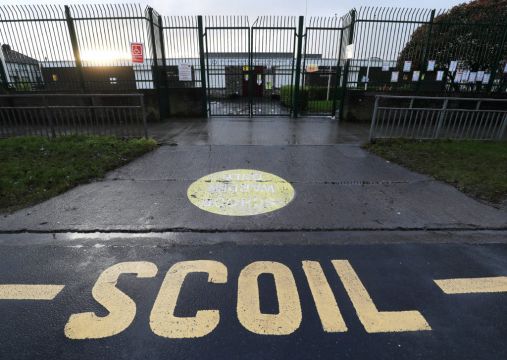Almost half of parents (47.9 per cent) with children in fifth or sixth year in secondary school feel there has been a major negative impact on their child's learning due to school closures caused by the Covid-19 pandemic.
This figure dropped to 36.3 per cent among parents with a child in any secondary school year group, while the comparable rate for primary school students was 14.8 per cent according to the Central Statistics Office.
Parents were also asked how their child's social development has been affected, with 33.6 per cent of secondary school parents and 20.9 per cent of primary school parents saying their child has suffered a major negative impact in this regard.
Despite varying approaches to remote learning, the number of students spending more time on learning activities increased across the board during the second school closure.
During the first school closure from March-June last year, 39.4 per cent of secondary school students said they did over four hours of learning activities provided by their school, increasing to 75.8 per cent during the current closure which began in January.
For primary school students, 33.5 per cent spent over three hours a day on learning activities provided by their school during last year, jumping to 56.9 per cent this time around.
Working parents
Parents said they spent on average 52 minutes per day helping their child with schoolwork, while 10.9 per cent of those working from home said the closure of schools and childcare facilities has led them to working reduced hours.
Almost one quarter (23.2 per cent) of parents working remotely said they are now working disjointed hours, while women were more likely to have taken unpaid leave (9.4 per cent), compared to 0.4 per cent of men.
More women have also opted to work from home due to school closures, with 16.7 per cent of women choosing to work remotely compared to 9.3 per cent of men.
One year on
The CSO has also published data showing the wider impact of the pandemic on the country, one year since the first case of the virus was reported in the State.
According to new data collected up to February 19th, more than half (57.1 per cent) of adults say their mental health and well-being has been negatively impacted by the pandemic and 42 per cent rated their life satisfaction as 'low'.

One in four workers are now unemployed when people in receipt of the Pandemic Unemployment Payment (PUP) are included, with 12.3 per cent of employees reporting weekly earnings of less than €300, Covid-19 income supports included.
Seven in ten businesses (70.4 per cent) said they had a lower turnover than normal last year and the median spend to implement Covid-19 safety measures by small businesses (between 20-49 employees) last June was €4,000, increasing to €42,500 for large enterprises.
In 2020, there were 31.4 million fewer air and sea passengers arriving in and departing from Ireland compared to 2019, while bus and rail journeys fell by 78.3 per cent compared to pre Covid levels.
Public health guidance asking people to stay at home lead to 28.7 per cent of those surveyed saying their spend more quality time with the people they lived with last November and almost 45 per cent said something in their lives had changed for the better since the onset of the pandemic.







